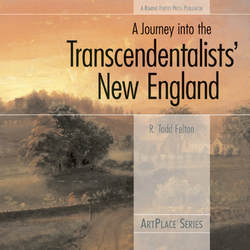Читать книгу A Journey Into the Transcendentalists' New England - R. Todd Felton - Страница 15
На сайте Литреса книга снята с продажи.
The Lyceum Movement
ОглавлениеLyceums were often the only form of higher education available to adults. Thoreau and Hawthorne, both notoriously withdrawn, served as secretaries of their local lyceums.
The lyceum movement in America began in 1828 in Millbury, Massachusetts, when a man named Josiah Holbrook began to organize a series of lectures for adults. The lectures were so popular that the idea spread, and by the mid-1830s there were several thousand lyceum programs across the nation. Many were in small towns, although New York and Boston also had active lyceum movements.
The audiences were usually mostly young and from the laboring and merchant classes. The lectures were hour-long expositions or demonstrations given by ministers, professors, scientists, reformers, or writers. Successful lecturers offered highly informative programs or a good laugh; the best were able to do both.
Nearly all the major Transcendentalist thinkers presented at lyceums. Emerson was the busiest on the circuit, giving some fifteen hundred speeches during his lifetime and one hundred in Concord alone. Thoreau delivered twenty orations in Concord and served as the curator and secretary of the Concord Lyceum in 1839, the only position in society he ever held. The novelist Nathaniel Hawthorne also served as the secretary of the Salem Lyceum for a season.
Unbeknownst to these communities, for her work would not appear in print until the end of the century, the western Massachusetts town of Amherst was home to a writer whose poetry would, in many ways, explicate the dreams of the Transcendentalists more clearly than any other. Secluded in her tiny paradise, Emily Dickinson spent the mid-nineteenth century quietly developing her own highly original relation to the universe. While she never visited Emerson in Concord nor rubbed elbows with the intelligentsia who frequented Elizabeth Peabody’s West Street bookstore in Boston, Dickinson is perhaps the ultimate example of the individualism that both inspired and limited the Transcendentalist movement.
